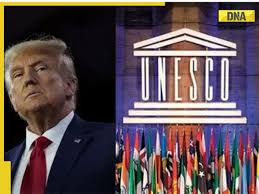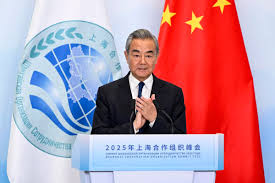The Trump administration has announced that the United States will once again withdraw from UNESCO, the United Nations agency responsible for protecting global culture, science, and education. The decision will take effect at the end of 2026 and could have wide-reaching effects on both U.S. global influence and World Heritage Sites at home.
What is UNESCO?
UNESCO stands for the United Nations Educational, Scientific and Cultural Organization. It was created after World War II to promote peace and cooperation between nations through culture, science, and education.
UNESCO is best known for its World Heritage program, which protects over 1,200 historic sites across the globe, including the Taj Mahal, Egypt’s pyramids, and the Grand Canyon in the U.S. These places are recognized as part of the world’s shared heritage.
UNESCO also helps set international standards on things like technology, education, artificial intelligence, climate change, and even Holocaust education.
Why is the U.S. Leaving Again?
This is not the first time the U.S. has pulled out of UNESCO. Here’s a short history:
1945: The U.S. helped found UNESCO.
1984: President Reagan pulled out over concerns about anti-U.S. bias.
2003: President George W. Bush rejoined.
2011: Under Obama, the U.S. stopped funding after Palestine was admitted as a full member.
2018: Trump withdrew again, citing anti-Israel bias and wasteful spending.
2023: Biden rejoined and promised to pay back $600 million in unpaid dues.
Now, in 2025, Trump has once again decided to leave UNESCO, calling it a wasteful and politically biased organization.
According to a statement from the U.S. State Department, the agency supports “divisive globalist causes” and promotes anti-Israel rhetoric. Trump’s team said the decision aligns with his “America First” foreign policy.
What’s the Impact on World Heritage Sites?
There are 26 UNESCO World Heritage Sites in the U.S., including, Statue of Liberty (New York), Grand Canyon National Park (Arizona), Everglades National Park (Florida), Yellowstone National Park (Wyoming, Montana, Idaho), Independence Hall (Pennsylvania) and Great Smoky Mountains (Tennessee and North Carolina)
These designations help bring international recognition, tourism, and sometimes financial aid for conservation. While leaving UNESCO won’t strip these sites of their World Heritage status immediately, it may:
Reduce global cooperation in protecting them
Limit funding or support for preservation efforts
Hurt tourism, especially from international visitors who follow UNESCO travel guides
Undermine America’s global cultural leadership
Additionally, Trump signed an executive order raising entrance fees for foreign tourists at national parks—many of which are World Heritage Sites—stating they should serve American interests first.
A Bigger Picture: U.S. Influence vs. Global Leadership
The Biden administration rejoined UNESCO in 2023, warning that U.S. withdrawal had created a vacuum of power that allowed countries like China to shape global policies—especially around technology and AI.
UNESCO has recently been working on, AI regulation and ethics, Educational tools for developing countries, Climate change programs, Global access to scientific information and Fighting disinformation and promoting press freedom
Without the U.S., these efforts may become more heavily influenced by rival nations, shifting global norms away from American values.
The U.S. will remain a member until the end of 2026, unless another administration changes course again. During this time, the decision is likely to affect:
Ongoing UNESCO projects with U.S. scientists and educators
Funding for cultural and environmental initiatives
American participation in global talks on technology, education, and heritage
UNESCO has not officially responded yet, but international critics worry the move could weaken global unity on issues that require international cooperation.
The Trump administration’s decision to leave UNESCO reflects its broader push to distance the U.S. from multilateral organizations. While it fits into the “America First” strategy, critics argue that it could reduce American soft power, limit influence over global norms, and harm the very cultural and natural treasures it aims to protect.
As the U.S. steps back again, many are left asking: Who will lead the world in preserving the past and shaping the future?



